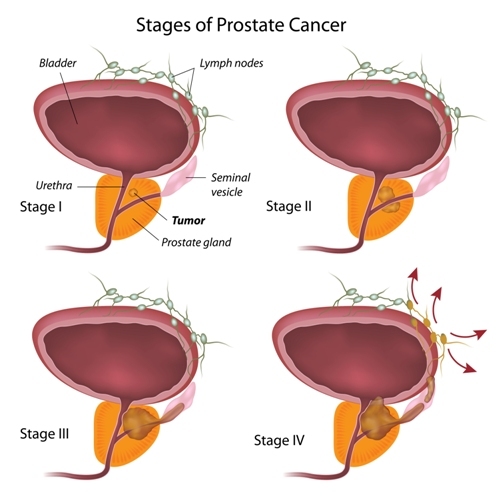What's On This Page?
ToggleI recieved this question via my syndicated newspaper column. Let me first relay what LD asked, and then elaborate.
“Dear Pharmacist,
What do you think about fish oil being linked to prostate cancer? I used to take it every day but stopped after hearing about it in the news. Do you still recommend it?” –L.D., Miami, Florida
First, the Controversy…
In recent times, fish oil has been at the center of a controversial discussion regarding its link to prostate cancer. Many individuals, including you from Miami have raised concerns based on alarming headlines. My article today aims to address these concerns comprehensively, scrutinizing the evidence and shedding light on the often misunderstood facts about fish oil and its derivatives. Why? Because I want you to have as many natural helpful options as possible!
Understanding Fish Oil and Omega-3 Fatty Acids
Before delving into the debate, it’s essential to clarify what fish oil is and its constituents. Fish oil primarily contains omega-3 fatty acids, specifically EPA (eicosapentaenoic acid) and DHA (docosahexaenoic acid). These components are crucial for various bodily functions and are believed to offer numerous health benefits, including heart health and anti-inflammatory properties.
As it pertains to heart health, you may be interested in How Grape Juice Helps Shortness Of Breath And Heart Disease.
The Study That Sparked the Debate
The crux of the concern comes from a study released in 2010 which examined the effects of ethyl esters of omega-3 fatty acids. It’s had trickle effects for many years! We are now in 2024 as I continue this discussion and update this blog.
It’s critical to note that these ethyl esters are NOT the same as the natural fish oil supplements commonly available. These are, in fact, a patented pharmaceutical form of omega-3s, which could have different effects on the body than natural fish oil.
Misinterpretation in the Media
Headlines often simplify and sensationalize findings without providing the nuances of the research. In this case, the headlines linking “fish oil” to an increased risk of prostate cancer are misleading, as the study did not investigate over-the-counter fish oil supplements but a specific pharmaceutical formulation.
Scientific Evidence Supporting Fish Oil
Despite the sensational headlines, there is robust scientific literature that supports the safety and health benefits of fish oil. High-quality studies, including those conducted in Sweden, New Zealand, and Japan, have demonstrated that high levels of fish consumption and the corresponding levels of DHA in the body are associated with a significant reduction in prostate cancer risk. For instance, a study among 6,000 Swedish men found that high fish consumption lowered prostate cancer rates significantly.
Additional Benefits of Omega-3 Fatty Acids
Beyond prostate health, omega-3 fatty acids derived from fish oil have been widely recommended by reputable organizations like the American Heart Association and the WHO. These guidelines are based on the extensive benefits of omega-3s, ranging from cardiovascular health to mental well-being.
The Importance of Natural Sources
It’s imperative to recognize the importance of consuming natural products as opposed to synthetic alternatives. Natural progesterone, for instance, is known for its protective benefits for women’s breast health, whereas synthetic versions carry numerous side effects. Similarly, vitamin D3, which is naturally occurring, is preferable over the synthetic D2 due to better absorption and efficacy in the body.

Fish Oils and Psychological Symptoms
There was a STUDY in 2023 that evaluated whether or not fish oils could help with mental health symptoms in men with prostate cancer.
Previous studies suggest that consuming more omega-3 fatty acids can reduce psychological symptoms like depression in the general population.
However, the effect is unclear in cancer patients. So researchers tried to figure this out.
This study was a phase IIB double-blind, placebo-controlled trial.
It compared the effects of a specific omega-3 supplement and a placebo (high oleic acid sunflower oil) on depression and other psychological symptoms such as anxiety, fear of cancer recurrence, fatigue, insomnia, and cognitive impairments. The participants were 130 men from a prostate cancer clinic who had undergone surgery.
They were divided into two groups, each receiving either the omega-3 supplement or the placebo daily for one year, starting from 4-10 weeks before their surgery. The men’s symptoms were evaluated at multiple points: Before surgery, and then 3, 6, 9, and 12 months after surgery.
Over the course of the study, symptoms such as depression, anxiety, fear of cancer recurrence, insomnia, fatigue, and perceived cognitive impairments generally decreased. The study found that psychological symptoms in men treated for prostate cancer generally improved over time, but omega-3 supplementation did not enhance this improvement. Therefore, omega-3s might not be effective for psychological symptoms after prostate cancer treatment.
Conclusion: How to Supplement Safely
Given the overwhelming evidence supporting the health benefits of omega-3 fatty acids and fish oil, it remains a recommended supplement for most people, including those concerned about prostate health. For those looking to incorporate omega-3 supplements into their diet, it is crucial to choose high-quality products and follow proper dosing guidelines.
Navigating Misinformation
It’s always advisable to consult with your healthcare providers and look beyond sensational headlines to understand the full context of any health study. This ensures that decisions are informed by comprehensive and scientifically sound information rather than misconstrued data.

Suzy Cohen, has been a licensed pharmacist for over 30 years and believes the best approach to chronic illness is a combination of natural medicine and conventional. She founded her own dietary supplement company specializing in custom-formulas, some of which have patents. With a special focus on functional medicine, thyroid health and drug nutrient depletion, Suzy is the author of several related books including Thyroid Healthy, Drug Muggers, Diabetes Without Drugs, and a nationally syndicated column.


